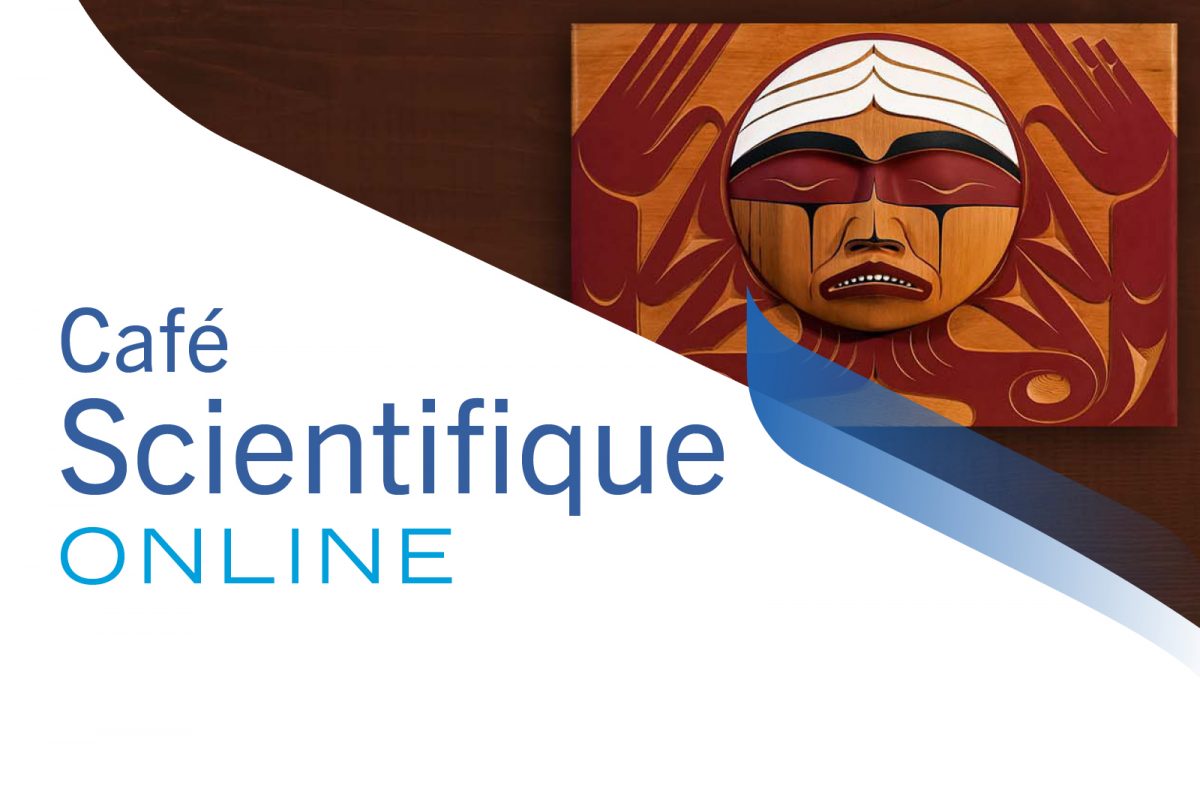
UM Café Scientifique offers rich array of topics in 2022
Join us Jan. 11 to learn about the Canadian Reconciliation Barometer project
On Jan. 11, 2022, the UM Café Scientifique series features a group of panelists in discussion about the Canadian Reconciliation Barometer project, which seeks to understand what reconciliation means to Indigenous and non-Indigenous peoples.
Join us online at 7 p.m. to learn more about the methods used to track reconciliation progress, in a way that is respectful of Indigenous Peoples and uses best practices in psychometrics (the science of psychological measurement) and public polling.
C0-moderated by Vanier scholars from UM Faculty of Arts Iloradanon Efimoff and Aleah Fontaine, the evening features panelists Ry Moran, Associate University Librarian – Reconciliation, University of Victoria; Brenda Gunn, Academic and Research Director at the National Centre for Truth and Reconciliation (NCTR) and Professor, Faculty of Law, University of Manitoba; and Katherine Starzyk, Associate Professor, Psychology, UM’s Faculty of Arts.
Use the online viewing link at 7 pm on the date of the event, to watch the live stream.
About UM Café Scientifique
The UM Café Scientifique series brings together experts with non-researchers (you, me, neighbours and friends) in a relaxed atmosphere (wherever you are joining us from virtually!), to learn about their research and the questions it raises. Cafés are scheduled throughout the academic year, on a weeknight, and encompass topics that reflect the breadth of research underway at the UM. They are hosted and organized by the Office of the Vice-President (Research and International).
Read on for more great upcoming events!
Feb. 3 Event postponed, new date TBD: Windows on the Universe
Piecing together astrophysical puzzles. We have entered a new era where astrophysicists and nuclear physicists can work in concert to piece together the puzzles that astrophysical observations present. Modern state-of-the-art astrophysical facilities have opened a whole new window for studying the Universe, allowing us for the first time to pinpoint the explosive sites and collapsed stars responsible for making the heavy elements like gold and platinum. Nuclear physicists study earth-bound elements that allow us to understand the make-up of cosmic matter. Join our expert panel of physicists for a conversation about exploring the frontiers of the mega-large and ultra-small in this next era of multi-messenger astrophysics and precision nuclear physics.
Moderated by Dr. Wouter Deconinck, Assistant Professor, Physics and Astronomy, UM’s Faculty of Science.
Panelists:
- Juliette Mammei, Associate Professor, Physics and Astronomy, UM’s Faculty of Science
- Jorge Piekarewicz, Distinguished Research Professor, Physics, Florida State University
- Samar Safi-Harb, Professor, Physics and Astronomy, former Canada Research Chair in Supernova Remnants Astrophysics, UM’s Faculty of Science
Mar. 3: Feeding Baby: What, when and how to introduce foods
New approaches use ‘active introduction’ rather than avoidance. Until recently, guidelines prescribed what foods parents should avoid feeding their infants. The aim was, in part, to prevent food allergies. Findings from the Learning Early About Peanut study caused pediatric societies worldwide to leap from active avoidance to active introduction. Although active introduction may reduce the risk of certain food allergies, uptake of this approach has been slow, partly due to confusion around the dramatic shift. Join our expert panel as they discuss this new approach, how it may prevent food allergies and hear practical guidance for families with infants.
Moderated by Mae Santos, Registered Dietitian and Master’s student from the Protudjer Lab.
Panelists:
- Elissa Abrams, Assistant Professor, Pediatrics and Child Health, Max Rady College of Medicine, UM’s Rady Faculty of Health Sciences
- Edmond S. Chan, Clinical Professor, University of British Columbia (UBC), Clinical Investigator (BCCH Research Institute) and Head (UBC Division of Allergy & Immunology, BCCH)
- Jennifer Protudjer, Assistant Professor, Pediatrics and Child Health, Max Rady College of Medicine, UM’s Rady Faculty of Health Sciences; Endowed Research Chair in Allergy, Asthma and the Environment; Research Scientist, Children’s Hospital Research Institute of Manitoba
Mar. 16: What is that little bird telling you?
How do animal brains work? Have you ever wondered how birds can migrate thousands of kilometres and return to a specific location each year? Or what the squirrel chattering in your backyard is trying to say? The answers to these questions are more complex and fascinating than you may have imagined. Join us to hear from UM scientists who are studying how animals think and communicate. They will share their latest research findings, stories from the field and discuss how learning about the brains of animals can help us to better understand our own.
Moderated by Dr. Benjamin Lindsey, Department of Human Anatomy and Cell Science, Rady Faculty of Health Sciences.
Panelists:
- James Hare, Department of Biological Sciences, Faculty of Science
- Randall Jamieson, Department of Psychology, Faculty of Arts
- Debbie Kelly, Department of Psychology, Faculty of Arts
All UM Café Scientifique events begin at 7 pm and end by 8:30 pm (Central Time).
Use the online viewing link below at 7 pm on the date of the event, to watch the live stream. If you missed the event, this link can be used to watch the recording.
See more about the UM Café Scientifique series.






